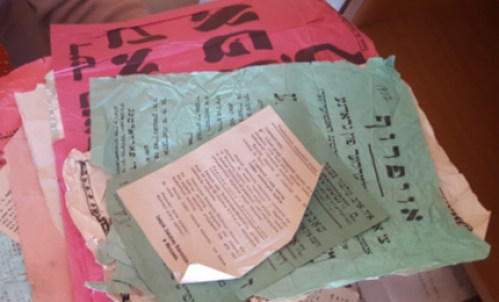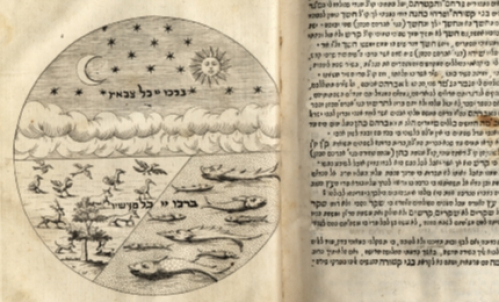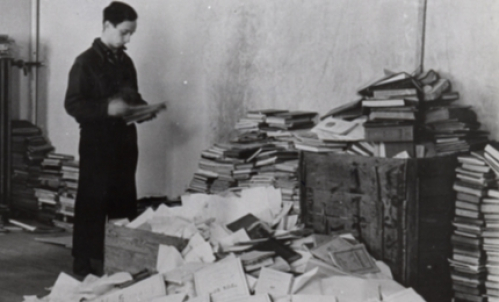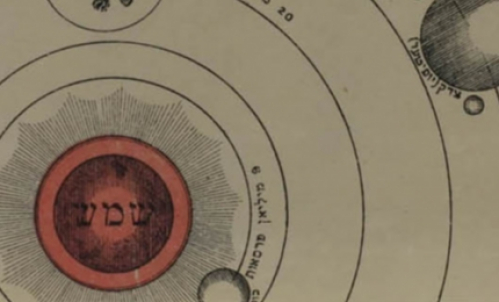Sounds of Industry and Jammed Transmissions: Spotlight on Composer Annie Gosfield
by ALEX WEISER
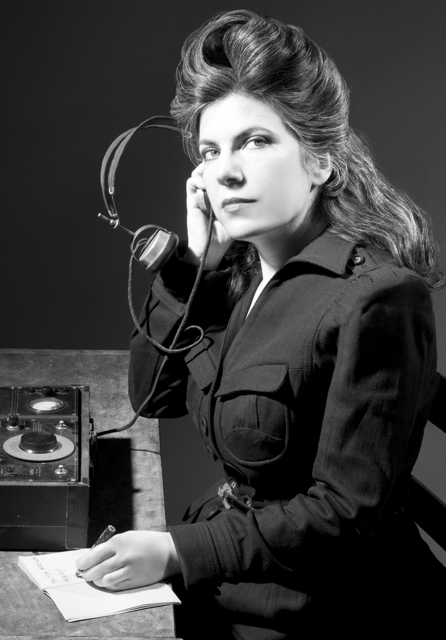
Annie Gosfield is a Jewish American composer who grew up in Philadelphia, born to parents who had both been born in New York City, and she is the youngest of four children. All four grandparents were Eastern European Jewish immigrants who emigrated in the late 19th century and met and married in the U.S.
Like so many others, Gosfield’s grandparents “spoke Yiddish at home as a secret language.” Gosfield explains. “My grandparents didn’t teach it to either my father or my mother, but of course my father and my mother understood a huge amount of Yiddish and they pretended they didn’t.” When they were raising Gosfield they felt it was important to continue this cultural legacy and sent Gosfield to the Workmen’s Circle to study Yiddish.
This strong connection to the past notwithstanding, Gosfield’s family’s cultural Jewish identity did not extend to religion. She recalls that the family enjoyed big, lively get-togethers for Passover, but adds , “I would say my parents were atheists, but that’s a little too much dogma… as they got older they got less and less religious. We used to laugh that the one way we could rebel is if we got extremely religious.”
The presence of a piano in her childhood home sparked an early curiosity in music. Gosfield recalls that “the piano was sitting there and I would sit down and play it and make up movies in my mind and improvise along with them.” Gosfield’s early piano teacher was Bernard Peiffer, a jazz pianist who was trained classically and who was also a Jewish member of the French resistance.
Gosfield went to North Texas State University where she studied composition and piano, unsure if she wanted to be a Jazz pianist, Classical pianist, or composer. Gradually leaning toward writing her own music, Gosfield recalls, she had a conversation with a family member. “I had an aunt who had actually studied with Darius Milhaud and she said to me, ‘Oh, aren’t you playing classical music anymore?’ and I just said, ‘Helen, I got tired of playing other people’s music.’ ”
Gosfield’s studies then took her to the University of Southern California in Los Angeles where she became involved in free improvisation, played in her own own band, and began working with electronics. Gosfield remembers that it “was a time when synthesizers and then samplers became affordable, and you could develop stuff by yourself. I explored that quite a bit in Los Angeles with my partner Roger Kleier who is a guitarist. I was playing piano, but was more playing keyboards. When sampling technology got cheap in the ‘80s it just opened up this huge new aesthetic to me… and I think even when I write pieces that are purely acoustic, some of this comes into it. I’ll work with someone and study their sounds and incorporate their sounds.”
In 1992. Gosfield moved to New York. “I wound up on Second Avenue, which was very important to me, as this was the Jewish Rialto and my grandfather, who was dead before I was born, used to go to the theater, and to Café Royal, which is directly outside my apartment. I can look out the window at both of these places. When I moved to New York, there was a lot going on, there was this dip in rent, there had just been some huge real estate bubble that had burst and people were walking out on their apartments so there was this new generation of musicians who moved here in the early ‘90s. And the Knitting Factory on Houston Street was open, and you could just go and see free improv: someone from a classical background, someone from a jazz background. Everyone would know each other, everyone would have an opinion about the music. It was a pretty fascinating time. And people were blunt and honest … This was kind of new to me, and incredibly refreshing.”
Once she got to New York, a formative experience was performing at the festival of radical Jewish culture, which was run by John Zorn. Gosfield put together a band and they played her composition, The Manufacture of Tangled Ivory. Gosfield explains that this composition was “inspired by my grandmother and her time on the Lower East Side; the sounds she would have heard, and me moving to the Lower East Side so many years after her, and the different experiences we had. She would have been a teenager who worked in sweatshops, a very difficult life, and here I am. Not that life is so easy, but I’m an adult artist just taking it all in and loving this environment.” This piece ended up being later performed and recorded by Bang on a Can, bringing her music to a lot of people. In the meantime, Gosfield was also recording her own music for John Zorn’s Record Label, Tzadik. “I had these kind of dual careers, of writing for others and writing for my own group,” she recalls.
Another formative composition for Gosfield was her EWA7. In the summer of 1999, Gosfield received a fellowship to write a work combining art and industry based on time spent in the factories of Nuremburg, Germany. “This is every Jewish girl’s dream,” Gosfield jokes. “Spend the summer in Nuremberg, Germany!” During that summer Gosfield recorded a library of samples of industrial sounds which she has used in many pieces since. This exploration later inspired Gosfield to create works utilizing the sounds of satellites, jammed radio signals, transmissions, and coding of resistance groups in WWII, and more.
In the fall of 2016, YIVO commissioned Gosfield to create a new work inspired by her research of topics that interest her at YIVO. Speaking about her experience researching her new composition Number Six Goerck Street, Gosfield remarks, “There’s such an embarrassment of riches here [at YIVO] that it was fun just to kind of float around and look at books and figure out what approach I wanted to take.”
We will be featuring a program of Annie Gosfield’s music including the premiere of a new commission on May 4th, 2017.
Based on an oral history interview with Annie Gosfield conducted by Alex Weiser on March 30th, 2017 in New York City. Quotes have been adapted from the conversation in consultation with Ms. Gosfield. The complete audio recording of the interview is now a part of the YIVO Institute for Jewish Research’s Sound Archive.
Alex Weiser is YIVO’s Director of Public Programs.
